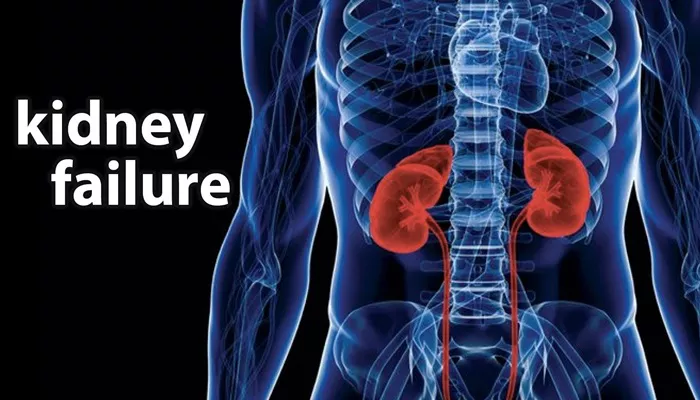Heart failure is a complex and serious condition that impairs the heart’s ability to pump blood effectively. As a result, various organs and systems in the body can be adversely affected. One of the most significant areas impacted by heart failure is the kidneys. This article explores the intricate relationship between heart failure and kidney function, highlighting the mechanisms of interaction, clinical implications, and management strategies.
The Connection Between Heart Failure And Kidney Function
Heart failure and kidney dysfunction are interrelated conditions that often exacerbate one another, a phenomenon known as cardiorenal syndrome. The heart and kidneys are part of a complex system where their functions are closely linked. When the heart fails to pump blood effectively, it impacts renal perfusion and overall kidney function. This interdependence underscores the importance of understanding how heart failure affects the kidneys and vice versa.
SEE ALSO: When to Stop Diuretics in Heart Failure
Mechanisms of Heart Failure-Induced Kidney Dysfunction
Several mechanisms contribute to kidney dysfunction in the context of heart failure:
Reduced Renal Perfusion Pressure: In heart failure, the heart’s diminished pumping ability leads to decreased cardiac output and blood flow. This reduction in perfusion pressure can compromise kidney function by reducing the glomerular filtration rate (GFR), which is the rate at which the kidneys filter blood.
Activation of Neurohormonal Systems: Heart failure activates several neurohormonal systems, including the renin-angiotensin-aldosterone system (RAAS) and the sympathetic nervous system. Activation of RAAS leads to increased levels of angiotensin II and aldosterone, which cause vasoconstriction and fluid retention. While these mechanisms aim to improve blood pressure and volume, they can exacerbate kidney damage by increasing renal vascular resistance and promoting fluid overload.
Fluid Overload and Edema: In heart failure, fluid retention is common due to impaired cardiac function and elevated pressure in the veins. Excess fluid can accumulate in the kidneys, leading to edema and increased intrarenal pressure. This fluid overload can impair renal function and contribute to a vicious cycle of worsening heart failure and kidney damage.
Inflammatory Responses: Heart failure often triggers systemic inflammation, which can adversely affect the kidneys.
Inflammatory cytokines and other mediators can contribute to renal damage by promoting fibrosis and oxidative stress, further impairing kidney function.
Clinical Implications of Cardiorenal Syndrome
The interaction between heart failure and kidney dysfunction can have significant clinical implications:
Worsening Heart Failure: Impaired kidney function can lead to fluid retention and exacerbate symptoms of heart failure, such as dyspnea and edema. This worsening of heart failure can, in turn, further compromise kidney function, creating a detrimental feedback loop.
Increased Risk of Mortality: Patients with both heart failure and kidney dysfunction have a higher risk of mortality compared to those with isolated heart failure or kidney disease. The combination of these conditions can lead to more severe symptoms, frequent hospitalizations, and a poorer overall prognosis.
Challenges in Management: The management of patients with both heart failure and kidney dysfunction requires careful balancing of fluid status, blood pressure, and renal function. Diuretics are commonly used to manage fluid overload, but excessive use can further impair kidney function. Adjustments in medications and close monitoring are essential to avoid exacerbating either condition.
Management Strategies for Heart Failure And Kidney Dysfunction
Effective management of heart failure with concurrent kidney dysfunction involves a multifaceted approach:
Optimizing Heart Failure Treatment: Treatment of heart failure aims to improve cardiac function and reduce symptoms.
This may include the use of medications such as ACE inhibitors, beta-blockers, and diuretics. It’s crucial to tailor treatment to the individual patient’s needs and to monitor for potential effects on kidney function.
Managing Fluid Status: Accurate assessment of fluid status and careful use of diuretics are critical. Strategies may include monitoring daily weights, adjusting diuretic doses based on symptoms and renal function, and employing strategies to manage fluid overload while minimizing renal impairment.
Addressing Comorbidities: Managing comorbid conditions such as hypertension and diabetes is essential, as these can exacerbate both heart failure and kidney dysfunction. Blood pressure control and glycemic management play a significant role in preserving kidney function.
Renal Replacement Therapy: In advanced cases where kidney function deteriorates significantly, renal replacement therapy, such as dialysis, may be necessary. Coordination between cardiologists and nephrologists is vital to ensure appropriate care and management.
Lifestyle Modifications: Encouraging patients to make lifestyle changes, such as adopting a low-sodium diet, engaging in regular physical activity, and avoiding substances that can harm kidney function, is an important aspect of managing both heart failure and kidney disease.
Conclusion
The relationship between heart failure and kidney function is intricate and complex, with each condition having the potential to exacerbate the other. Understanding the mechanisms through which heart failure affects the kidneys is crucial for providing effective patient care and improving outcomes. A comprehensive management approach that addresses both heart failure and kidney dysfunction is essential for optimizing patient health and reducing the risk of adverse outcomes.

